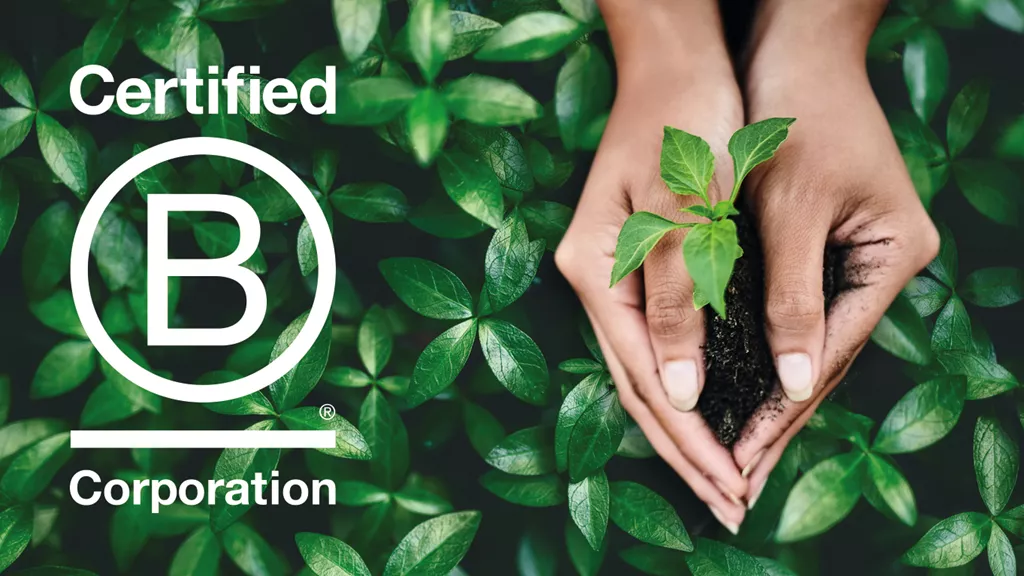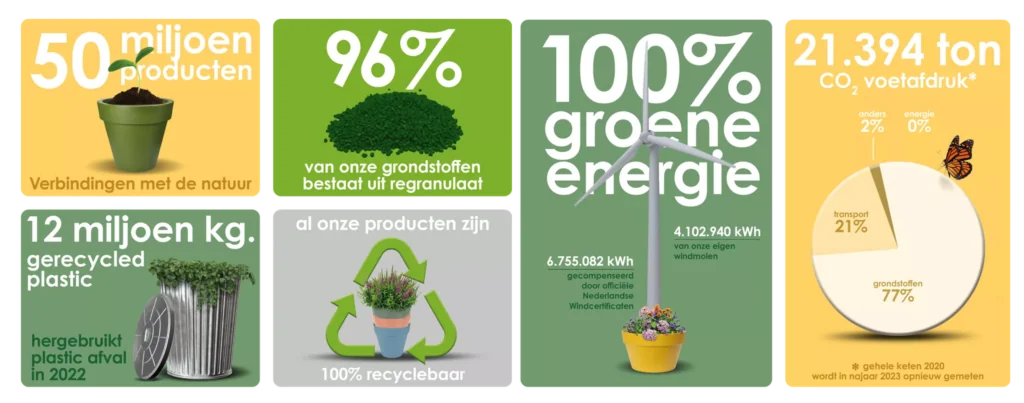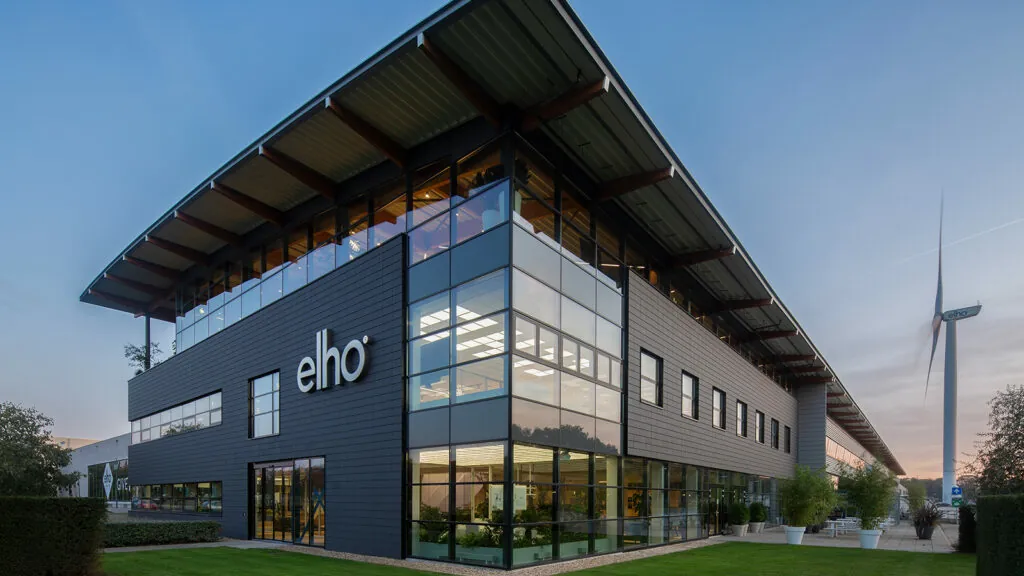Sustainability in e-commerce: Reducing the climate impact within e-commerce
November 17, 2023

November 17, 2023

⏰ Estimated reading time: 4 minutes
In 2023, the topic of sustainability is alive and well in large parts of society. Stakeholders, employees and customers alike are increasingly aware of the social values of a company. As an e-commerce company, you can no longer get away with just CO2 compensation. We need to change course and make this sector more energy efficient.
Still, many e-commerce companies are reluctant. They have the idea that it costs a lot of money to use energy more sustainably. A company that thinks differently is elho. For almost 60 years, this Dutch family business has been developing sustainable flower pots and plants. Their mission is to work towards a greener and more sustainable world.
For the past two years, elho has been a Certified B Corporation. This means that as a company they keep the world healthy, liveable and safe for the future generation. At elho, their production process runs on wind energy and in 2021 they converted over 12 million kilograms of recycled plastic waste into design pots.

They feel a responsibility to work together to build a greener and better world for current and future generations. The company has the ambition to become 100 percent circular, and they aim to achieve zero CO₂ emissions in the coming years.
E-commerce has a reputation for being a polluting industry with delivery vans that consume a lot of fuel, unnecessary plastic packaging and returned items that eventually end up on a rubbish heap in developing countries. In short, the industry needs to reduce its energy consumption. But how?
Based on this energy ambition, elho achieved the following in 2022; An electric charging station for trucks, fourteen charging points for cars and more than 68 percent of the fleet is fully electric or plug-in hybrid.
In addition, the collection of design pots produced by elho consists of 100 percent recycled plastic. It goes without saying that all products are recyclable. By 2024, the entire collection will be produced with 100 percent recycled plastic. This makes elho standout within the industry.
In 2022, elho developed the most circular distribution centre in Europe. This 40,000m² distribution center is built with 100 percent recycled materials and equipped with 9000 solar panels. The battery installed by elho is unique, as it can store the 4.2 megawatts of solar energy. The circular LED lighting ensures that the lights only turn on when they are really needed. As a result, the company saves enormously in its energy consumption.

Elho’s ambitions are very clear; minimizing transport, reducing packaging with the aim of a zero CO2 footprint. Reducing CO2 emissions is mainly due to the use of electric trucks and the reduction of waste.
They achieve this through transport reduction. All their products are produced in the Netherlands, so the production and storage facilities are closer together. As a result; less polluting trucks on the road.
In recent years, Elho has been looking at how they can optimize packaging to reduce packaging space. In addition, as a company, they produce almost no waste at all, which in turn is good for the environment.
All their production waste is converted into granules and the heat released during the production of the design pots is reused. By taking these steps, elho advocates the principle of reduce, reuse and recycle.
Sustainability is more than a logistical process. The climate impact of a product starts the moment the raw materials are mined. Elho shows that it is indeed possible for the e-commerce industry to commit to using energy more sustainably.
By using environmentally friendly packaging and less packaging material, the use of raw materials can be reduced. Smaller packages don’t take up as much space in the distribution center, and less fuel is emitted during transport. As a result, CO2 emissions in packaging production are lower. In addition, suppliers can choose to only use electric vans and bicycles in order to reduce the CO2 impact on the climate even more.
Returning parcels is a major challenge within the industry. By providing customers with all the necessary information about the product they want to order, companies can ensure that fewer bad buys are made. Reducing return purchases helps make the industry greener and more sustainable.
The e-commerce sector depends on computer equipment and servers. These devices consume a lot of energy and emit a lot of heat. It is therefore time for the industry to use energy more efficiently. By entering into partnerships, this sector can achieve that goal. For example, suppliers can seek advice from data centers that offer environmentally friendly solutions in the field of cooling or reusing heat within office buildings. Organisations can also talk to other companies about doing business in a greener way. Collaborations actually make the industry stronger and can contribute to reducing packaging waste, returned items and fuel emissions.
Nowadays, you see that more and more companies are taking the step to invest in sustainable energy sources such as wind and solar energy. Companies such as elho have an exemplary role because they use 100 percent green energy within their production process.
The e-commerce industry can also do its part by opting for energy-efficient buildings, products, data centers, and transportation. Leading the way is the online Dutch supermarket Picnic. This company doesn’t have a store, just a distribution center and drives around with small electric trucks. As a result, their CO2 emissions are significantly less than those of a regular supermarket.
The need to recycle waste will only increase in the future. The e-commerce industry mainly has the problem that there is a surplus of packaging material that ends up in the garbage. Companies such as elho and Ikea have been working for a long time to reduce their packaging material as much as possible. At Ikea, they even go so far as to take into account the amount of packaging material during the design phase of the products. By doing so, they hope to reduce their impact on the climate.
In general, the e-commerce industry is doing better than the regular retailer when it comes to sustainability. But there is still work to be done. Sustainability goals are the future for this sector. By making small adjustments and looking at energy-efficient options such as solar energy, recycled packaging, and reducing CO2 emissions, this industry can reduce its impact on the climate while remaining profitable.

Don't miss a thing.
Subscribe to our latest blog articles.